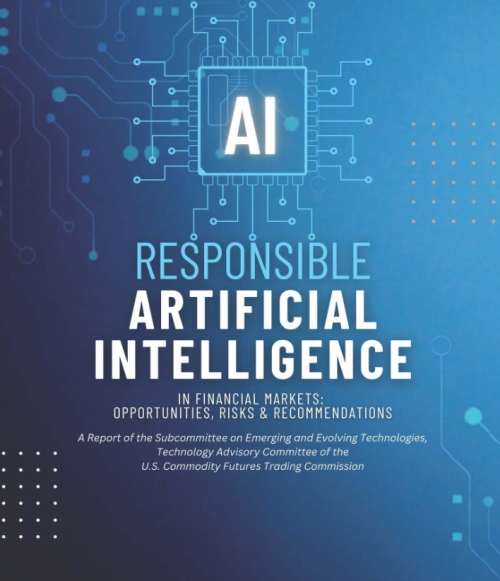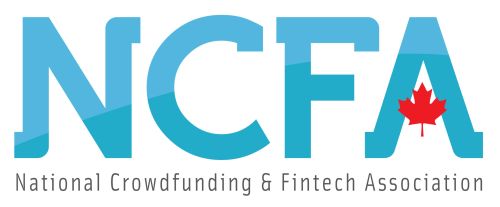AI Report | May 8, 2024

 Image: CFTC-TAC Report – Responsible AI in Financial Markets Opportunities, Risks, Recommendations
Image: CFTC-TAC Report – Responsible AI in Financial Markets Opportunities, Risks, RecommendationsCFTC’s TAC Outlines Essential Frameworks for Responsible AI in Financial Markets
On May 2, 2024, the Commodity Futures Trading Commission’s Technology Advisory Committee (TAC), sponsored by Commissioner Christy Goldsmith Romero, released a comprehensive report titled, “Responsible AI in Financial Markets” (see: release here). This report addresses the need for responsible AI practices to safeguard financial markets amid the evolving AI landscape, especially with the introduction of generative AI.
See: Three Generations Discuss AI Concerns, Hopes, and the Future
The committee of esteemed AI experts made several key recommendations to ensure that AI systems used in financial markets are transparent, fair, robust, and privacy-respecting. These include leveraging existing efforts by the White House and Congress, developing an AI Risk Management Framework in line with NIST guidelines, and enhancing AI governance both at the firm and regulatory levels. The report also emphasizes the importance of continued dialogue and engagement with industry stakeholders to align AI usage in financial markets with responsible practices.
1. The Need for an Iterative, Foundational Approach
- The committee emphasizes an iterative approach to AI development and integration, which is critical where technologies rapidly evolve. This method allows for continuous reassessment and recalibration of AI systems to adapt to new data, emerging risks, and regulatory changes. It suggests a move away from static policies towards more dynamic, responsive regulatory frameworks that can keep pace with technological advancement. See: Gensler Warns of ‘AI Washing’ in the Financial Industry
- Ensure that AI experts are involved from day 1 to ensure deep understanding and that recommendations are not only based on current best practices but are also forward-looking to anticipate future technological trajectories and their implications.
2. Address Opportunities and Risks
- While AI offers immense opportunities for efficiency and enhanced decision-making, it also presents significant risks, such as potential biases, lack of transparency, and the threat of destabilizing financial markets through autonomous, high-speed operations. The report acknowledges these dual aspects and recommends frameworks that emphasize robustness, transparency, and fairness.
See: US-UK AI Safety Partnership Announced. What About Canada?
- The report highlights unique challenges posed by generative AI, such as the production of ‘deep fakes‘ or synthetic data that could be misleading or false. These issues are particularly pertinent in the financial sector, where trust and accuracy of information are paramount. Addressing these challenges requires specific regulatory and technological responses.
3. Governance and Regulatory Frameworks
- One of the key recommendations is the adoption of a Risk Management Framework (RMF), aligned with the National Institute of Standards and Technology (NIST) guidelines. This framework would help entities assess and mitigate risks introduced by AI applications, ensuring that AI systems are not only effective but are also safe and do not inadvertently harm users or the financial system.
- The committee suggests that the CFTC should collaborate with other federal agencies, such as the SEC and the Treasury, to ensure that AI policies are harmonized and that they benefit from a shared understanding of AI technologies and their implications across different sectors. See: SEC Examines AI Impact on Investment Advising
4. Ongoing Engagement and Build Internal Expertise
- The report calls for ongoing dialogue through roundtables and direct engagements with industry stakeholders. This is critical for ensuring that the regulatory approaches to AI are informed by up-to-date industry practices and challenges.
See: EU Lawmakers Approve Historic AI Regulation Act
- There is an emphasis on building internal expertise within agencies like the CFTC. This involves not only training current staff but also potentially hiring AI specialists who can bring in-depth technical knowledge to the regulatory process.
Conclusion
The TAC’s report is an important step in addressing the complex interplay between AI and financial markets. It advances the groundwork for responsible governance and regulatory oversight, ensuring that as AI technologies evolve, they do so in a way that safeguards the integrity of financial markets and protects consumers. The recommendations provided are set to guide future regulatory practices and stimulate further discussion among stakeholders in the financial ecosystem.

 The National Crowdfunding & Fintech Association (NCFA Canada) is a financial innovation ecosystem that provides education, market intelligence, industry stewardship, networking and funding opportunities and services to thousands of community members and works closely with industry, government, partners and affiliates to create a vibrant and innovative fintech and funding industry in Canada. Decentralized and distributed, NCFA is engaged with global stakeholders and helps incubate projects and investment in fintech, alternative finance, crowdfunding, peer-to-peer finance, payments, digital assets and tokens, artificial intelligence, blockchain, cryptocurrency, regtech, and insurtech sectors. Join Canada’s Fintech & Funding Community today FREE! Or become a contributing member and get perks. For more information, please visit: www.ncfacanada.org
The National Crowdfunding & Fintech Association (NCFA Canada) is a financial innovation ecosystem that provides education, market intelligence, industry stewardship, networking and funding opportunities and services to thousands of community members and works closely with industry, government, partners and affiliates to create a vibrant and innovative fintech and funding industry in Canada. Decentralized and distributed, NCFA is engaged with global stakeholders and helps incubate projects and investment in fintech, alternative finance, crowdfunding, peer-to-peer finance, payments, digital assets and tokens, artificial intelligence, blockchain, cryptocurrency, regtech, and insurtech sectors. Join Canada’s Fintech & Funding Community today FREE! Or become a contributing member and get perks. For more information, please visit: www.ncfacanada.org
Related Posts
- SEO Powered Content & PR Distribution. Get Amplified Today.
- PlatoData.Network Vertical Generative Ai. Empower Yourself. Access Here.
- PlatoAiStream. Web3 Intelligence. Knowledge Amplified. Access Here.
- PlatoESG. Carbon, CleanTech, Energy, Environment, Solar, Waste Management. Access Here.
- PlatoHealth. Biotech and Clinical Trials Intelligence. Access Here.
- Source: https://ncfacanada.org/responsible-ai-in-finance-cftcs-new-framework/
- :is
- :not
- :where
- 1
- 150
- 2%
- 2018
- 2024
- 250
- 34
- 62
- 8
- a
- About
- accuracy
- across
- Act
- adapt
- address
- addresses
- addressing
- Adoption
- advances
- advising
- advisory
- affiliates
- agencies
- AI
- AI governance
- AI regulation
- AI systems
- align
- aligned
- allows
- also
- alternative
- alternative finance
- Amid
- among
- an
- and
- announced
- anticipate
- applications
- approach
- approaches
- approve
- ARE
- artificial
- artificial intelligence
- AS
- aspects
- assess
- Assets
- At
- autonomous
- away
- based
- BE
- become
- benefit
- BEST
- best practices
- between
- biases
- blockchain
- both
- bring
- build
- Building
- but
- by
- cache
- Calls
- CAN
- Canada
- CFTC
- challenges
- Changes
- closely
- commission
- commissioner
- committee
- community
- complex
- comprehensive
- Concerns
- Congress
- continued
- continuous
- could
- create
- critical
- Crowdfunding
- cryptocurrency
- Current
- data
- day
- decentralized
- Decision Making
- deep
- destabilizing
- developing
- Development
- dialogue
- different
- digital
- Digital Assets
- direct
- discuss
- discussion
- distributed
- do
- dual
- dynamic
- ecosystem
- Education
- Effective
- efficiency
- efforts
- emerging
- emphasize
- emphasizes
- engaged
- engagement
- engagements
- enhanced
- enhancing
- ensure
- ensuring
- entities
- especially
- essential
- esteemed
- Ether (ETH)
- EU
- evolve
- evolving
- Examines
- existing
- expertise
- experts
- fair
- fairness
- false
- Federal
- finance
- financial
- financial innovation
- Financial sector
- financial system
- fintech
- Firm
- For
- foundational
- Framework
- frameworks
- from
- funding
- funding opportunities
- further
- future
- Futures
- Futures Trading
- genai
- generations
- generative
- Generative AI
- Gensler
- get
- Global
- governance
- Government
- groundwork
- guide
- guidelines
- harm
- help
- helps
- High
- highlights
- Hiring
- historic
- hopes
- House
- http
- HTTPS
- image
- immense
- Impact
- implications
- importance
- important
- in
- in-depth
- inadvertently
- include
- industry
- information
- informed
- Innovation
- innovative
- insights
- Institute
- Insurtech
- integration
- integrity
- Intelligence
- internal
- introduced
- Introduction
- investment
- involved
- involves
- issues
- IT
- Jan
- jpg
- Keep
- Key
- knowledge
- Lack
- landscape
- lawmakers
- levels
- leveraging
- like
- Line
- made
- management
- Market
- Markets
- max-width
- May..
- Media
- member
- Members
- method
- misleading
- MIT
- Mitigate
- more
- move
- National
- Need
- networking
- New
- nist
- of
- Offers
- on
- ongoing
- only
- Operations
- opportunities
- or
- Other
- outlines
- Oversight
- Pace
- particularly
- partners
- Partnership
- payments
- peer to peer
- perks
- plato
- Plato Data Intelligence
- PlatoData
- please
- policies
- posed
- potentially
- practices
- presents
- process
- Production
- projects
- protects
- provided
- provides
- rapidly
- recommendations
- recommends
- Regtech
- Regulation
- regulatory
- released
- report
- requires
- responses
- responsible
- responsive
- Risk
- risk management
- risks
- robust
- robustness
- Roundtables
- s
- safe
- safeguard
- safeguards
- Safety
- SEC
- sector
- Sectors
- see
- Services
- set
- several
- shared
- should
- significant
- So
- specialists
- specific
- Sponsored
- Staff
- stakeholders
- standards
- static
- Step
- Stewardship
- stimulate
- such
- Suggests
- synthetic
- synthetic data
- system
- Systems
- Technical
- technological
- Technologies
- Technology
- that
- The
- The Future
- their
- These
- they
- this
- thousands
- threat
- three
- Through
- titled
- to
- today
- Tokens
- towards
- Trading
- Training
- Transparency
- transparent
- treasury
- understanding
- unique
- up-to-date
- Usage
- used
- users
- vibrant
- Visit
- Warns
- Way..
- What
- which
- white
- White House
- WHO
- with
- within
- works
- would
- zephyrnet












